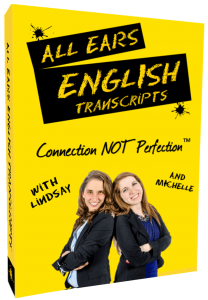The English language has some tricky words that even native speakers get confused about.
Some of these tricky words are “though,” “through,” “throughout,” and “thought.”
How can you keep them straight when you write them and speak them?
Find out today!
Today we have a question from a listener:
“Sometimes I get caught with some confusing words. They are “through, throughout, tough, thought, thorough, trough, though, throw and Thoreau”.
The written and pronunciation of these words are difficult even for someone who has studied plenty of times.
I’ve studied these words already however, I make mistakes sometimes by these words so I don’t know what you think about doing an episode to explain the differences between them.
That’s just a suggestion and as a loyal listener of AEE I thought it would be great to suggest you when it’s possible. Sorry If I made any mistake in this email to my written. I wish you all the best and just keep going your outstanding work.”
-AEE Listener
Make sure you understand every word you hear on All Ears English.
Bring your English to the advanced level with new vocabulary and natural expressions.
Get the transcripts from today’s episode.
Learn to speak naturally with the American accent.
1) Common mistake #1
“Through” versus “throughout”
These are very similar.
There is a lot of overlap when it comes to the use of these two words but they do have a slightly different meaning.
Here is what they mean:
- Through – from one end to the other
- Throughout- in every corner of a space
“The voice was heard through the store” = from the front door to back door, more precise, straight line
versus
“The voice was heard throughout the store”= at the front, at the back, in the bathroom, etc.
More examples:
- “Do you walk through the subway cars when you get on to find the best seat?”
- “Do rats scamper throughout the entire subway system?”
2) Common mistake #2
“Though”=conjunction= in spite of the fact that, although
Example: “Though he worked hard on his business, it failed”
versus
“Tough”= adjective= hard, difficult, tricky
Examples:
“This test was so tough.”
“The toughest guy in school was a bully.”
versus
“Thought”= noun or verb= an idea, a neuron firing in your head or the past tense of “to think”
Example: “I thought you were coming to my party.”
What is the key to not getting confused with these?
Slow down, read them closely.
Even natives mess them up.
3) Common mistake # 3
“Throw” = verb= To move something in the air
versus
“Thorough”= adjective= complete or perfect
versus
“Thoreau”= Henry David Thoreau. He was a writer who lived in Concord, MA and on Walden Pond. He wrote Walden and he lived between 1817 and 1862.
Listen to the episode for a role play so that you can see the differences between these words and how they’re used.
Let us know your questions below.




